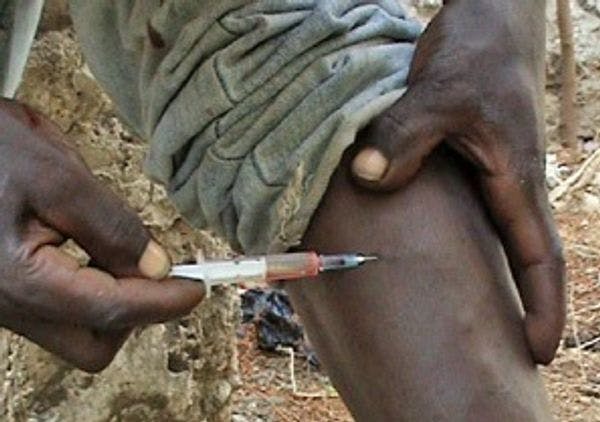Distribución de agujas entre personas que se inyectan drogas en Kenia
El gobierno de Kenia empezará a distribuir agujas y jeringuillas gratuitas por todo el país el próximo mes. Más información, en inglés, está disponible abajo.
___________________________________________________________________________
The Kenyan government will begin distributing free syringes and needles to more than 50,000 injecting drug users (IDUs) across the country in the next month. Policy-makers and experts said the decision was reached following concerns over the spread of HIV and other blood-borne illnesses through injection drug use.
The plan was announced on 5 June at a workshop in the coastal city of Mombasa, where the programme will be piloted. The area has been reported as a transit route for international drug trafficking and has the country's highest number of injecting heroin users.
"We are trying our best to address the entire problem of drug abuse amongst the youths. We had to identify an alternative of stopping the youths from sharing needles, our attention having been drawn by the rate at which these young… [people] were contracting HIV and other diseases, such as hepatitis," said Dr Anisa Omar, the Coast Provincial Director of Public Health and Sanitation.
"In Mombasa alone, we have over 26,000 youths who use injection drugs, with at least one out of every four being found to be HIV-positive. In Nairobi [the capital] we have 20,000 youths who are IDUs." Injecting drug use is responsible for close to 4 percent of national HIV infections, and 17 percent of new infections in Coast Province annually, according to government statistics.
Needle distribution follows a decision by the government in 2010 to address injection drug use as a public health issue rather than a criminal matter.
Research shows that encouraging IDUs to test for HIV, treating the addiction and the infection, and keeping the individuals in care, is a more successful strategy for preventing the spread of HIV than incarcerating addicts, as risk behaviours like needle-sharing often increase in prison.
The government aims to distribute some eight million needles and syringes to drug users countrywide once the programme is rolled out, and will also encourage HIV testing, provide antiretroviral drugs, condoms, and medication for tuberculosis, the most commonly found co-infection with HIV.
Opposition
The move has drawn criticism from groups who say the programme is at odds with their efforts to end injecting drug use, and some have threatened legal action. "We will file a petition in court... these children of ours don't even have any veins remaining in their bodies," said Amina Abdalla, secretary of the Coast Community Anti-Drugs Coalition.
"Where do they expect them to inject themselves? Their bodies are ruptured and rotten as a result of constant use of the needles. Besides, [drug] peddlers and barons will have a field day, for they’ll know their products will be on demand, and that's not acceptable."
Religious leaders on the coast expressed similar views, urging the government to spend the money and manpower allocated for the project on drug rehabilitation instead.
But Coast Province health director Omar said the new programme was justified by the unsafe techniques used by drug users, including needle-sharing and "flash blood" - in which a syringe with blood containing drugs is shared - significantly heightening infection risk.
A 2009 assessment of more than 100 narcotics users - mostly IDUs - in Mombasa, by Darat-HIV/AIDS International Agency, a local NGO, identified flash blood as the likely cause of high levels of HIV (50 percent) and hepatitis C (70 percent) infection among participants.
Omar said, "The programme, which will see every addict given three needles and syringes per day, will be supplied to specified private rehabilitation centres and hospitals by NGOs and qualified medical practitioners, in collaboration with anti-drug campaigners, whom we soon plan to train on how they'll best handle the addicts."
Keep up-to-date with drug policy developments by subscribing to the IDPC Monthly Alert.
